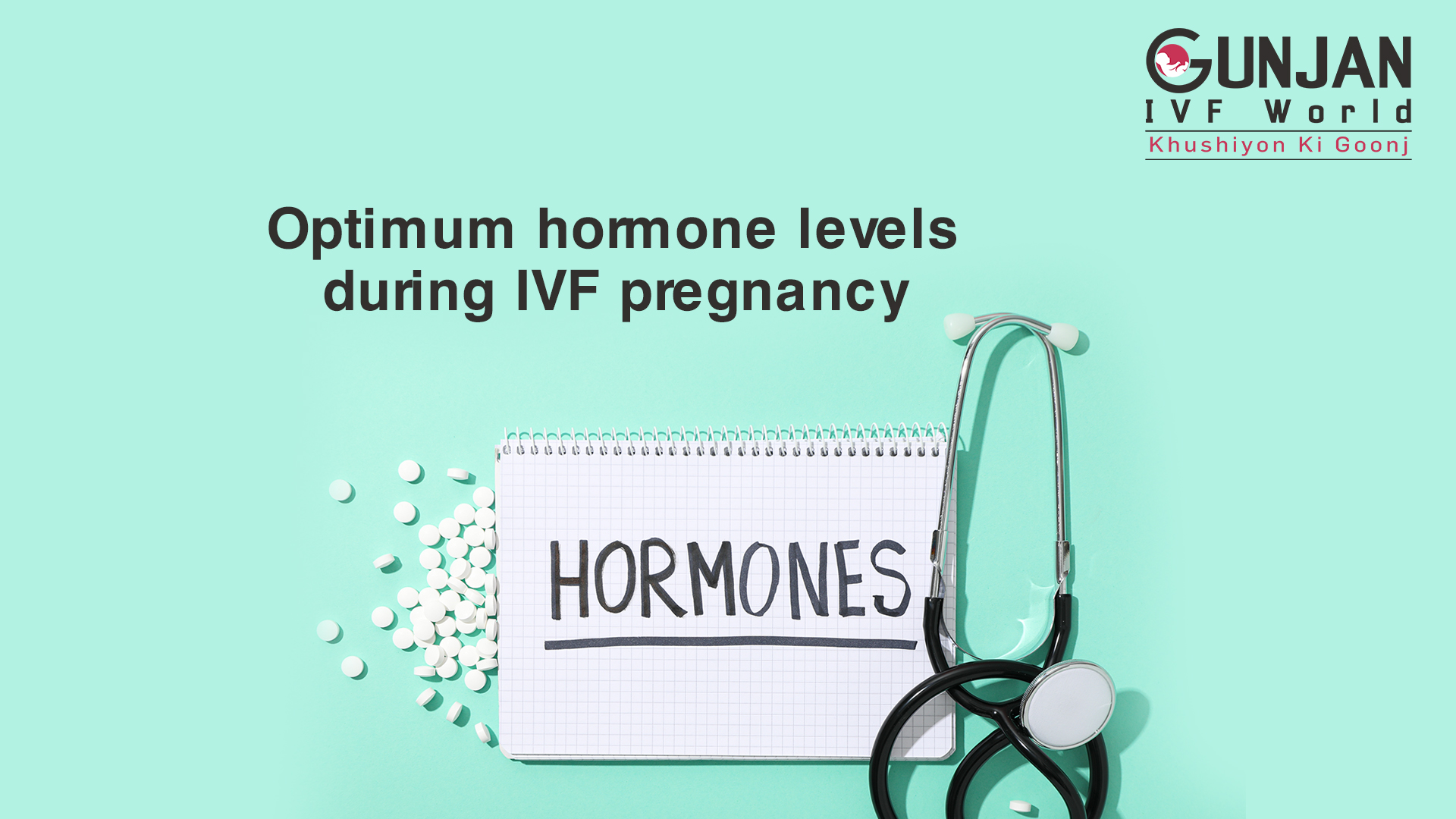Comprehensive Fertility Treatments | Gynaecology Procedures | Menopause Management | Pregnancy Care | Maternity & Birthing

Read this article by IVF experts of the best IVF clinic in Ghaziabad – Gunjan IVF World about optimum hormone levels during IVF pregnancy.
Going for IVF treatment is not an easy journey for couples. There are so many ups and downs they have to face. One of the most common among them include the fluctuating hormone levels. IVF experts of the best IVF clinic in Delhi – Gunjan IVF World pen an article on the optimum hormone levels that are required during IVF pregnancy.
Why is it important to monitor hormone levels?
“During an IVF (In-Vitro Fertilisation) pregnancy, monitoring hormone levels is crucial for supporting implantation, early pregnancy, and foetal development,” said Dr. Gunjan Gupta, renowned gynaecologist Ghaziabad and Founder & Medical Director, of a leading IVF clinic in Ghaziabad – Gunjan IVF World. It is also the third time winner of North India’s best IVF clinic chain by Economic Times and has four highly advanced IVF centres in Indirapuram, Janakpuri, Noida and Meerut.
Here are the key hormones and their optimum levels or expected ranges during different stages of IVF:
- Estradiol (E2): “One of the most crucial hormones that is responsible for generating reproductive hormones. The ideal range of estradiol before egg retrieval or stimulation phases should be around 200-600 pg/mL per mature follicle. A level of around 2,000-3,000 pg/mL is common before hCG trigger. If this range exceeds 4,000 pg/mL, it is considered to be too high and might increase the rick of OHSS (Ovarian Hyperstimulation Syndrome),” mentioned Dr. Garima Sharma, Consultant and Centre In-Charge at Gunjan IVF World – a well-known IVF clinic in Janakpuri.
- Luteinising Hormone (LH): This hormone is responsible for menstrual cycle, triggers ovulation and maintains the corpus luteum. Before ovulation trigger, the ideal LH level should be low (<10 IU/L) to prevent premature ovulation. A surge in this hormone level is also manually induced with hCG or a GnRH agonist.
- Progesterone: The ideal level of this hormone before ovulation trigger should be <1.5 ng/mL. A rise in this level might reduce IVF success. After embryo transfer/early pregnancy, progesterone levels should be maintained with supplements. The desired levels should be 10-20 ng/mL or higher (on support).
- Beta-hCG (Human Chorionic Gonadotropin): This hormone level is usually checked 10-14 days after embryo transfer. 25 mIU/mL is considered positive for pregnancy. A healthy pregnancy test is expected to reveal the following – this hormone level on Day 14 post-transfer should be 50-500+ mIU/mL. this level is expected to double every 48-72 hours during early pregnancy.
- AMH (Anti-Mullerian Hormone): This is usually assessed before IVF treatment. This is not directly involved in pregnancy but reflects the ovarian reserve status. The normal range of AMH should be 1.0-4.0 ng/mL.
- TSH (Thyroid-Stimulating Hormone): The ideal level for TSH should be <2.5 mIU/mL in early pregnancy. It is important for this hormone level to be in the ideal range as it is essential for implantation and foetal development.
20+ Years Of Experience as Fertility Specialists
20 Years Of Experience as a Fertility Specialists
National Fertility Awards 2023
Call Us
+919990044555
Book An Appointment
Follow Us On
Related Blogs
Why Egg Freezing is a ‘Must-Consider’ Step When Diagnosed with Cancer
Comprehensive Fertility Treatments | Gynaecology Procedures | Menopause Management | Pregnancy Care | Maternity & Birthing Call +919990044555Hearing a cancer diagnosis feels like the ground slipping away. Suddenly, treatment plans, chemo schedules, and survival...
Zinc Deficiency Impacts Sperm Health
Comprehensive Fertility Treatments | Gynaecology Procedures | Menopause Management | Pregnancy Care | Maternity & Birthing Call +919990044555Zinc deficiency impacts sperm health: What every couple should know? Male fertility plays a crucial role in the journey to...
Follow Us On
About Author



